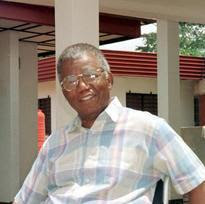By Valentine Obienyem
The last election in Nigeria was the worst in its electoral history. Have you asked yourself why it was only APC and Sen. Ahmed Bola Tinubu that failed to condemn non-transmission of results from the polling booths to the central server even before the results were announced? The election has created deep divisions among Nigerians, who belong to diverse ethnic and religious groups because Tinubu charged his supporters to secure victory for him by any means possible. Alas, we have seen how his followers used the ethnic and religious card, Ayo masquerade festival, guns, cudgels, threats, and psychological warfare to secure unmerited victory for him.
*Soyinka and ChimamandaThe unconscionable action of Tinubu was a clear example of his readiness to bring Nigeria down owing to his vaulting political ambition. The practical disfranchisement of Nigerians had removed the mental stimulus that comes from free political activity and a widespread sense of liberty and power.












